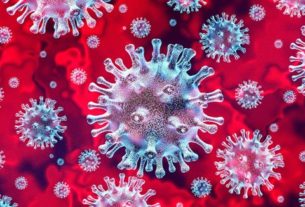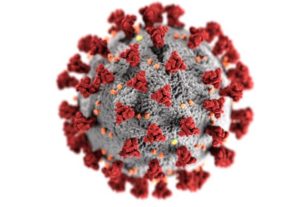From Our Bureau
24TH JULY 2020
The Corona Virus (COVID-19)
pandemic situation remained grim globally, with the confirmed cases across the
world soaring to 1,52,96,926 and the death toll rising to 6,28,903 in the 216 affected countries and
territories, according to the latest update from the World Health Organization
(WHO).
Globally, American region continued to be the worst-hit with 81,21,700 confirmed cases and 3,25,625 deaths. Europe came next with 31,70,382 confirmed cases and 2,09,421 deaths. South-East Asia region’s tally stood at 16,25,564 confirmed cases and 38,111 deaths.
Eastern Mediterranean region reported 14,42,346 confirmed cases and 36,600 deaths. African region registered 6,59,348 confirmed cases and 11,001 deaths. Western Pacific region recorded 2,76,845 confirmed cases and 8,132 deaths. WHO Risk Assessment at global level remained very high.
WHO Director-General Dr Tedros Adhanom Ghebreyesus, in his media briefing yesterday, reminded people not to let their guard down ‘we will not be going back to the “old normal.” The pandemic has already changed the way we live our lives. Part of adjusting to the “new normal” is finding ways to live our lives safely.’
As the possibility of a protracted pandemic becomes increasingly likely, countries are encouraged to conduct periodic reviews of their national and sub-national COVID-19 response. This ensures that countries do not miss critical opportunities for learning and improvement to better respond to the COVID-19 outbreak. WHO has produced guidance to assist in this exercise.
At the annual High-level Political Forum on Sustainable Development held between 7–16 July 2020, all countries expressed their support for the SDGs and discussed response measures to help mitigate the negative effects of COVID-19.
Ouagadougou: WHO is tackling COVID-19 fear and stigma in Burkina Faso, West Africa, where both patients and health workers have been shunned by their communities.
For Somalis, COVID-19 is the most immediate crisis in a seemingly unending cycle of floods, food insecurity, conflict and outbreaks of vaccine-preventable diseases like measles, cholera and polio. Against this backdrop, WHO’s polio programme is working to steer the COVID-19 response and, more broadly, maintain vaccine immunity levels and improve access to health
Subject in Focus:
COVID-19 Supply Chain System – Progress Update
Accessing the most critical supplies to respond to the COVID-19 outbreak has presented particular challenges for low- and middle-income countries with limited means to approach markets overwhelmed by unprecedented demand.
A collective effort by WHO, UN partner agencies, NGOs and donors has secured volumes of personal protective equipment (PPE), diagnostics and clinical care equipment from manufacturers, which are now being delivered to 143 low- and middle-income countries.
This pooled procurement process, coordinated by WHO, has resulted in significant increases in diagnostics, PPE and clinical care equipment delivered to countries over the past month.
Diagnostics
WHO convened the Diagnostics Consortium – comprising WHO, WFP, UNICEF, UNDP, Unitaid, UN DOS, PAHO, Africa CDC, Global Fund, Global Drug Facility, World Bank, CHAI, FIND, Bill and Melinda Gates Foundation – in response to supply shortages that resulted from massive global demand at the onset of the COVID-19 outbreak.
Over the past three months, the Consortium has worked to identify and negotiate with suppliers to secure diagnostic products to support low- and middle income countries.
Through the Consortium, WHO, UNICEF and the Global Fund have procured 6.5 million polymerase chain reaction (PCR) tests and 5.6 million sample collection kits to date for allocation to 134 countries.
The Consortium has also delivered nearly 2.5 million manual and automated polymerase chain reaction (PCR) tests to 44 countries, with another 1 million tests currently in transit. A total of 1.1 million sample collection kits have been delivered to 60 countries, and nearly 1 million kits are in transit. Efforts are ongoing to approach manufacturers to procure additional supplies to provide continuing support to countries through the COVID-19 pandemic.
The Consortium has started discussions to coordinate a procurement strategy and allocation criteria for Phase 2 of procurement (September to December 2020). As with Phase 1 (May to August 2020), efforts will remain focused on securing maximum supplies, ensuring equitable allocation and deliveries across countries, and encouraging transparency in procurement and distribution of supplies.
The Consortium encourages countries and partners to submit diagnostic requests through the COVID-19 Supply Chain Portal and to include the funding source of the supplies requested.
The Supply Chain catalogue for diagnostics has been revised to provide information to countries on specific products available for procurement through the Portal. Technical review of additional manual tests are ongoing to expand the Supply Chain catalogue to provide more options to the countries.
To explain the Phase 1 allocation, the Consortium has developed several documents, including (i) Technical Diagnostics FAQs, (ii) Diagnostics Allocation FAQs, and (iii) Diagnostic test reagent calculator.
Biomedical Equipment
Biomedical equipment procured to date: 14,000 oxygen concentrators (US$ 12.4 million) of which 3,960 have been shipped to 37 countries, 9,720 pulse oximeters (US$ 2.4 million) and 2,925 patient monitors (US$5.5 million).
COVID-19 Supply Portal
Since the launch of the COVID-19 Supply Portal, 83 countries have submitted 383 requests for supplies valued at US$ 163 million.
PPE
Since 14th July 2020, WHO has shipped an additional 11 million pieces of PPE, bringing the total numbers shipped to 61.4 million pieces. A further 190 million pieces of PPE are being prepared in the warehouse to be shipped in the coming weeks. (eom)



